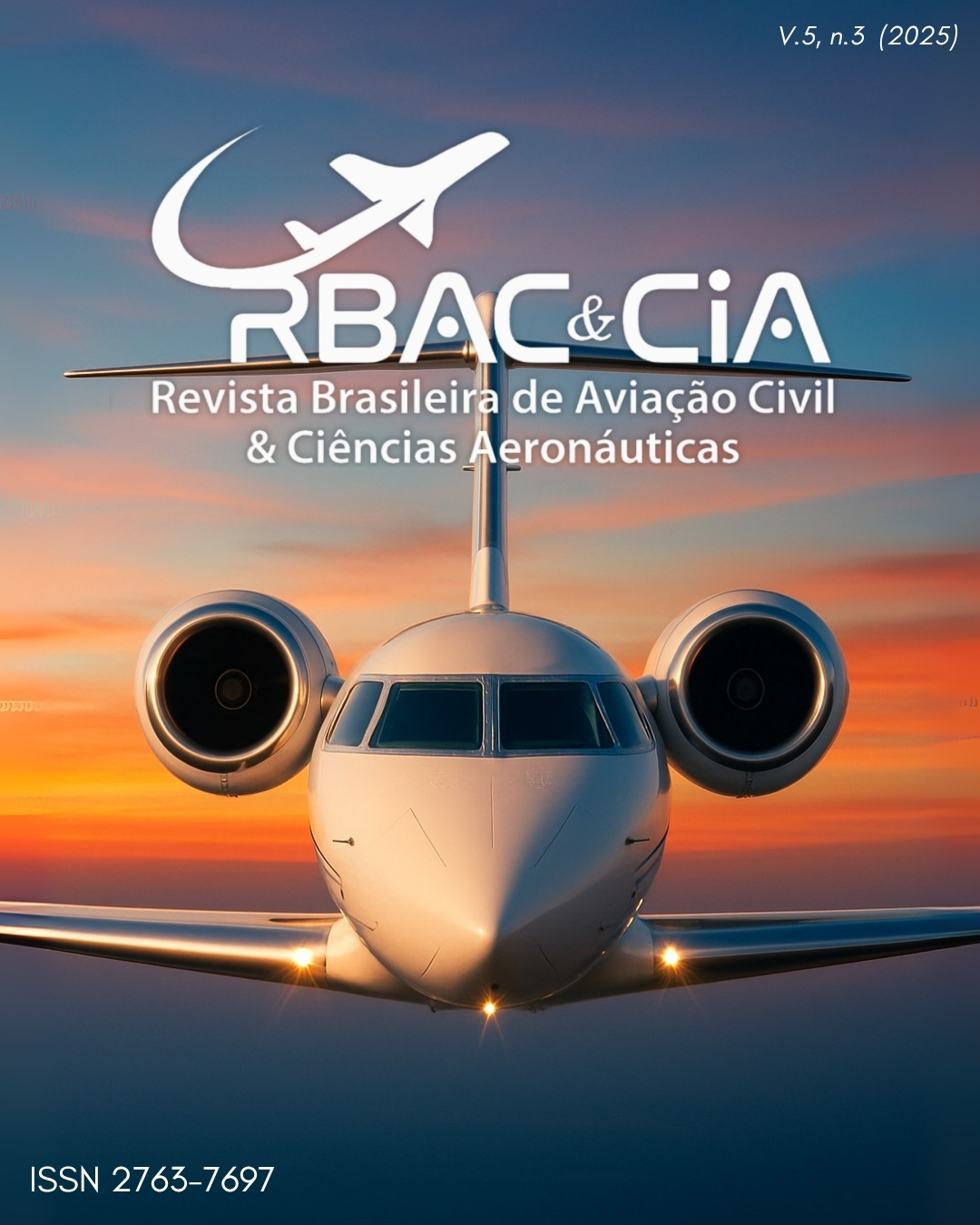AUTONOMIA DAS BATERIAS EM EVTOLS: DESAFIOS TÉCNICOS E SOLUÇÕES PARA A MOBILIDADE AÉREA URBANA BATTERY AUTONOMY IN EVTOLS: TECHNICAL CHALLENGES AND SOLUTIONS FOR URBAN AIR MOBILITY
Conteúdo do artigo principal
Resumo
Este estudo analisou os desafios técnicos associados à autonomia das baterias, aspecto relevante para a viabilidade operacional dos veículos elétricos de decolagem e pouso vertical (eVTOL). Por meio da revisão teórica, foram analisadas as quatro principais configurações de eVTOLs (Multicopter, Lift & Cruise, Tilt Wing/Tilt Rotor e Ducted Vectored Thrust) e cinco tecnologias de armazenamento de energia (íons de lítio, estado sólido, íons de sódio, lítio-enxofre e grafeno). Os resultados demonstram que, enquanto as baterias de íons de lítio permanecem como solução mais viável no curto prazo, as tecnologias de estado sólido e lítio-enxofre oferecem vantagens significativas em termos de densidade energética e segurança. O estudo destaca ainda a importância dos sistemas de gerenciamento de baterias (BMS), com o intuito de contribuir com a eficiência e segurança operacional dessas aeronaves. Conclui-se que o avanço no desenvolvimento de baterias, associado a avanços em aerodinâmica e gestão energética, será determinante para concretizar a mobilidade aérea urbana em escala comercial, com benefícios ambientais e econômicos significativos.
Palavras-Chave: eVTOLs; Autonomia de Baterias; Mobilidade Aérea Urbana; Baterias de Ions de Lítio; Baterias de Estado Sólido; Battery Management System (BMS); Tecnologias Emergentes.
ABSTRACT
This study analyzed the technical challenges associated with battery autonomy, a relevant aspect for the operational viability of electric vertical take-off and landing vehicles (eVTOL). Through a theoretical review, the four main eVTOL configurations (Multicopter, Lift & Cruise, Tilt Wing/Tilt Rotor and Ducted Vectored Thrust) and five energy storage technologies (lithium-ion, solid-state, sodium-ion, lithium-sulfur and graphene) were analyzed. The results demonstrate that, while lithium-ion batteries remain the most viable solution in the short term, solid-state and lithium-sulfur technologies offer significant advantages in terms of energy density and safety. The study also highlights the importance of battery management systems (BMS) in contributing to the efficiency and operational safety of these aircraft. It is concluded that advances in battery development, associated with advances in aerodynamics and energy management, will be decisive in achieving urban air mobility on a commercial scale, with significant environmental and economic benefits.
Keywords: eVTOLs; Battery Autonomy; Urban Air Mobility; Lithium-ion Batteries; Solid-state Batteries; Battery Management System (BMS); Emerging Technologies.
Downloads
Detalhes do artigo

Este trabalho está licenciado sob uma licença Creative Commons Attribution 4.0 International License.
